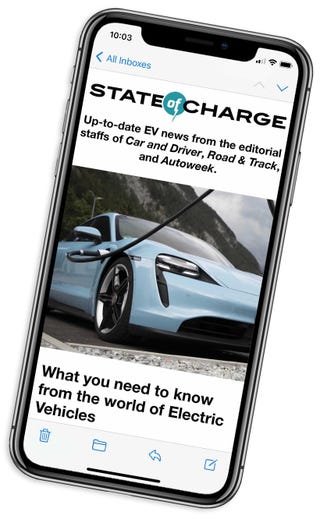
FREDERIC J. BROWNGetty Images
- Tesla owners love their cars a lot. Their views of CEO Elon Musk are much more nuanced, according to results of a survey by research group Escalent.
- A number of respondents who are either non-Tesla EV owners or intend to buy an EV see Musk as a negative, in fact.
- Tesla’s one-stop shopping for everything from financing to fast charging is a huge plus for the brand, the firm said, and it’s one GM and Ford may not be able to replicate.
Most people in the auto industry assume Tesla buyers are drawn to the brand’s high-tech image or are fans of its mercurial CEO, Elon Musk. But a new survey from research firm Escalent suggests that’s far from the real story.
The real reason is simpler, and far more traditional: They like the cars.
“In fact,” Mike Dovorany, VP at behavior and analytics firm Escalent, told Car and Driver, “among respondents who are shopping for or already own an EV—Tesla or otherwise—Elon Musk is among the top [drawbacks in] their consideration of the brand.”
Escalent’s research, part of its EVForward program, was conducted among a national sample of 1003 respondents, including a survey, focus groups, and interviews with industry experts, between December 21, 2020, and February 19, 2021. Respondents were 100 Tesla owners, 100 owners of other electric vehicles, and 803 drivers who do not currently own EVs. They are a subset of the EVForward database of more than 10,000 new-vehicle buyers from 18 to 80, weighted by age, gender, and state of residence to match the demographics of U.S. new-vehicle buyers and by vehicle type to match current sales. The sample for this research came from an opt-in online panel.
The results showed that Tesla vehicles appeal to both EV owners and those who intend to buy an electric car within five years. Their reasons are similar to what automakers hope for when launching any new product, whatever it’s powered by. EV owners and intenders saw Teslas as alluring for their styling, performance and acceleration, build quality, and the fact that they’re new and different. Battery range was the sole attribute among the top five named that is specific to electric cars.
As for Musk, Tesla owners had lots to say about him. While some of it was negative—largely related to views he has expressed on Twitter—they felt his contributions to the firm and to their cars outweighed those negatives.
Not so for the non-Tesla owners. They, too, had a positive view of Teslas as vehicles, and were far from rejecting them. But while roughly a quarter of Tesla owners (26 percent) said Musk detracted from the brand, a majority of non-owners viewed him as a negative: “a genius, but an outspoken, obnoxious one,” to use one quote from the company’s interviews.
Non-owners also expressed greater concern over Tesla’s safety in regard to its self-driving technologies: the Autopilot suite of advanced driver-assistance systems and the Full Self-Driving (FSD) function promised by the company for several years now.
The study contains many other nuggets about Tesla and how it’s viewed. Its youth as a company is of little concern, and in fact most respondents saw it as a positive. Because the company is fully committed to EVs, “there’s nothing close to it,” said one participant.
And Tesla’s Apple-like “one-stop experience” proved a huge plus for owners. Its ability to manage all aspects of EV purchase and ownership—sales, financing, service, fast charging, and route planning that incorporates fast charging—were cited by an overwhelming 91 percent of owners as a reason to buy another Tesla. That, Dovorany suggested, is an ecosystem traditional makers will struggle mightily to replicate.
Finally, getting people behind the wheel of an EV was widely seen as the best single way to convince shoppers that the cars were real and could work for them. Many owners reported they became much more open to buying an EV after knowing friends, family, or co-workers who had one. That’s exactly the same conclusion reached by a recent J.D. Power study of how makers could sell more EVs. Colloquially, it’s known in the industry as getting butts in seats.
This content is imported from {embed-name}. You may be able to find the same content in another format, or you may be able to find more information, at their web site.
This content is created and maintained by a third party, and imported onto this page to help users provide their email addresses. You may be able to find more information about this and similar content at piano.io
Source link






